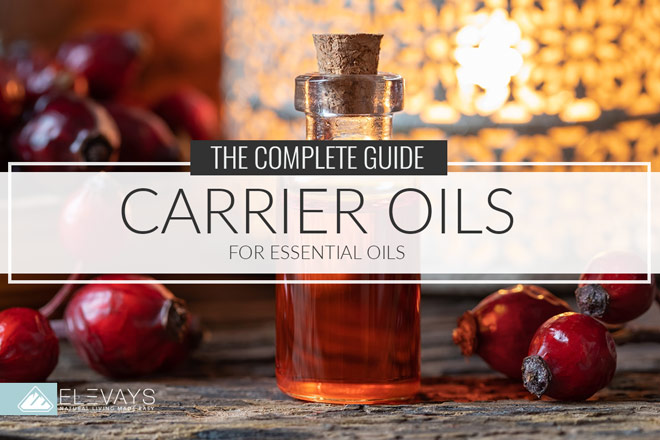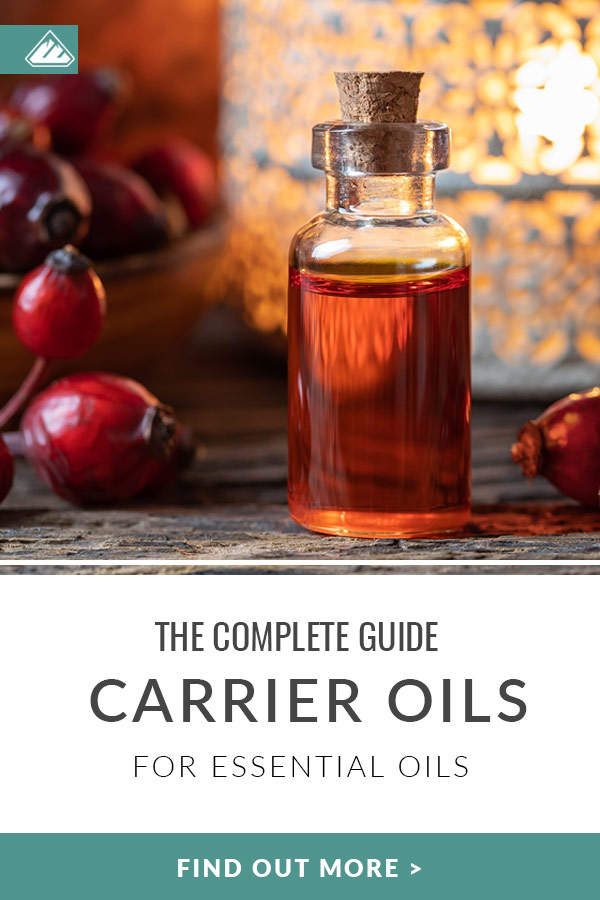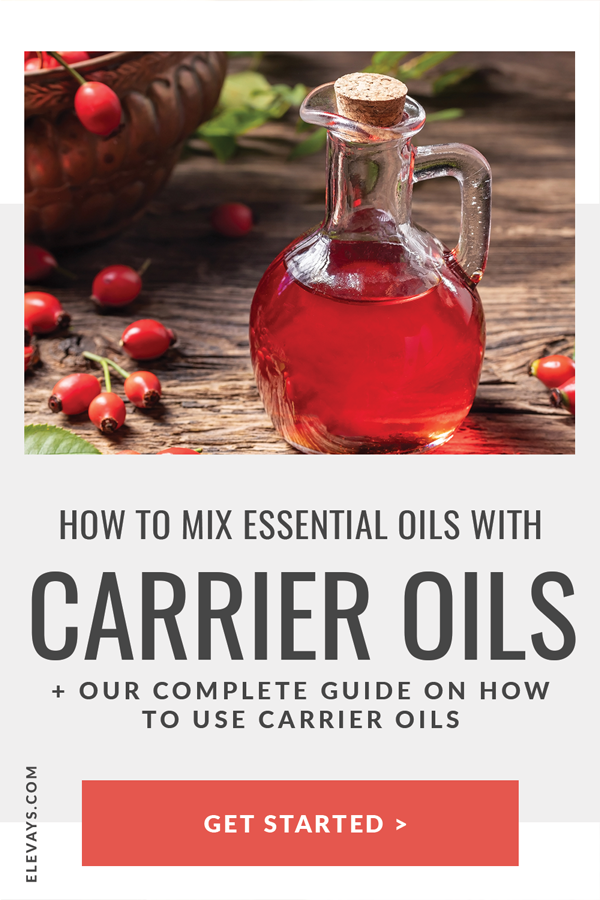Carrier oils are vital to using many essential oils, as there are some oils you must always dilute for safety like cinnamon, oregano, thyme, or clove. Other times, you may dilute an essential oil based on needs. In skincare, for example, dilution is often appropriate.
Some essential oils require a carrier oil, while others are safe on their own without dilution. Many therapeutic-grade essential oils are so potent they can cause skin irritation. Children are also much more susceptible to essential oils.
Use this as your complete guide to carrier oils. I’ll explain everything you need to select carrier oils for essential oil needs like skin and hair care. Learn how to make a therapeutic massage oil with the perfect carrier, which carrier oil is best for your skin type, and more.
TRUTH BOMB:
You’re
Already killing it!
If You Were More Consistent With Your Wellness Routine, You’d Be Unstoppable.
What are Carrier Oils?
Like essential oils, carrier oils come from plants (1). They’re a natural way to dilute essential oils for safety, as they are designed to carry the oils to your body. The carrier oil’s job is to prevent the essential oil from evaporating long enough for you to absorb the benefits.
You’ll typically use carrier oils with topical application. However, you may also need to mix the oils in certain situations for ingestion or aromatherapy. Carrier oils are unscented or lightly scented, so they shouldn’t interfere with the essential oils’ ability to function. You can also use a carrier oil alone to nourish your skin or hair further.
Types of Carrier Oils
Many types of carrier oils are available. The right option depends on your needs.
While most carriers are suitable for any essential oil, some come with additional benefits. Think about your method of application (aromatherapy, topically, or ingestion) and your purpose for use. Consider:
- Odor – Most carrier oils are odorless, but a few offer a distinct smell that can alter the aroma of your essential oil.
- Absorption – Your skin, depending on your skin type, may absorb or react to certain carrier oils better than others. You could have skin irritation from some carriers that can even worsen common skin conditions like acne, while non-comedogenic oils won’t clog pores.
- Shelf life – Carrier oils vary in the length of time they can safely be stored before they go bad.
For your safety, always buy therapeutic-grade oils. The U.S. Food and Drug Administration doesn’t regulate carrier oils. Cooking oils like olive and avocado oil are regulated. However, carrier oils safe for cooking are organic, additive and preservative-free, and cold-pressed.
A Complete Carrier Oils List
For common carrier oil types, check out this exclusive list of carrier oils:
- Fractionated coconut – The most loved carrier, fractionated coconut oil, is perfect for transferring essential oils to your body without hindering their smell. Coconut oil nourishes the skin, making it ideal for massage oils and skincare products.
- Regular coconut – This type of unprocessed coconut oil retains the coconut aroma and flavor. Virgin coconut oil comes solid, which makes it ideal for cooking.
- Avocado – A heavy oil, avocado is edible and topical. It helps dry and damaged skin, making it excellent for body creams or dry skin remedies (but never acne).
- Almond – With an overpowering nut smell, almond oil is edible and an excellent moisturizer for dry skin. It’s common in soap and massage oil.
- Jojoba – Moisturizing and delicate, jojoba oil comes with a nutty aroma. It balances the skin’s oil production, clears breakouts, and is easily absorbed by the skin. Use it in facial moisturizers, massage oils, and baths.
- Olive – Healthy and edible, olive oil is also ideal for aromatherapy, skincare, and hair care. The scent interferes with some essential oils, but it can clean and moisturize the skin well.
- Apricot – Apricot kernel oil comes in cosmetic or edible forms. It can soften and calm itchy skin, making it excellent in massage oils, and it’s rejuvenating for the hair. However, this oil has a sweet, nutty smell.
- Argan – Edible and topical, argan oil nourishes the body inside and out! Use it for dry skin, hair care, wrinkles, or skin inflammation.
- Rosehip – Excellent for fighting aging and skincare after a day in the sun, rosehip is a carrier oil for moisturizers and massage oils.
- Grapeseed – Less common, grapeseed is a lightweight oil the skin can easily absorb. It heals the skin and reduces the appearance of wrinkles.
- Sunflower – Edible and neutral in odor, sunflower oil protects the skin from germs and toxins in your environment that can cause infections (3). Create skincare products and massage oils using this oil to moisturize, soften, and soothe the skin.
How to Mix Essential Oils with Carrier Oils
Mix carrier and essential oils to create products for your skin or hair. Start by pouring four ounces of the carrier in a liquid measuring cup (or split the amount among two carriers). Add in 15-30 drops of your essential oil and add the formula to a glass jar that can hold at least 8 ounces.
Facial Lotions and Oils
You can use unscented facial lotions, creams, or oils as a carrier to improve the appearance of the skin, reduce scars, slow skin aging, heal wounds faster, detoxify the skin, boost skin tone, soften and hydrate skin, and so much more (2).
How much you dilute the essential oil may depend on your skin, for example:
- Normal skin – 1-2.5% dilution – 1 ounce of a carrier for 6-15 drops of essential oil
- Sensitive skin – .5-1% dilution – 1 ounce of a carrier for 3-6 drops of essential oil
Massage Oils
Aromatherapy and topical application meet up here to aid insomnia, headaches, stress and anxiety, chronic and acute pain, joint pain, pregnancy, inflammation muscle spasms, and treat movement injuries (2). To make therapeutic massage oils, follow this basic guideline for adults:
- 2.5% dilution – 6 teaspoons of a carrier for 15 drops of essential oil
- 3% dilution – 6 teaspoons of a carrier for 20 drops of essential oil
- 5% dilution – 6 teaspoons of a carrier for 30 drops of essential oil
- 10% dilution – 6 teaspoons of a carrier for 60 drops of essential oil
For children, dilute essential oils even further:
- .25% dilution (newborns) – 1 1/2 tablespoons of a carrier for 1 drop of essential oil
- .25-.5% dilution (6 months-2 years) – 1 tablespoon of a carrier for 1 drop of essential oil
- .5% dilution (2-6 years) – 2 teaspoons of a carrier for 1 drop of essential oil
- .5-1% dilution (6-12 years) 1 1/2 teaspoons of a carrier for 1 drop of essential oil
Caution: Most carriers won’t cause allergic reactions, but make sure to always test a small patch of skin before applying the oil for the first time – especially with children. Use caution with almond, argan, or apricot kernel oil until you know how you will react.
The Best Carrier Oil for Your Needs
The best carrier oil depends on your needs. For example, there are many carrier oils for skin applications, like olive, avocado, almond, coconut, and sunflower oils. Some carriers work better for specific purposes thanks to their genetic makeup:
- Therapeutic massage – Fractionated coconut oil is skin-nourishing with no aroma.
- Ingestion – Avocado or extra virgin olive oil are both healthy food-grade oils that you can use with veggie caps as well.
- Cooking – Solid coconut oil maintains its flavor but breaks down well in a frying pan.
- Skincare – Almond oil is excellent for skin conditions like eczema or psoriasis, while argan oil can clear blemishes and scars. In my opinion, the best carrier oils for skin (no matter what type you have) are jojoba, coconut, and rosehip oils.
- Dry skin – Extra virgin olive oil is extra hydrating to dry and oily skin, while coconut and sunflower oils are better for cracked skin.
- Oily/combination skin – Apricot or grapeseed mixed with olive oil works well.
- Facial care – Jojoba oil won’t clog your pores, making it one of the best carrier oils for acne. Argan oil also heals blemishes and fights aging whereas apricot kernel oil helps uneven skin tone.
- Carrier oils for hair – Argan, apricot, or olive oil all come with added benefits, making them familiar in organic hair products.
What Single Carrier Oil is the Best?
Everyone uses carrier oils for essential oils for different purposes, but I argue the best carrier for nearly all your needs is fractionated coconut oil. The aroma won’t interfere with the efficiency or benefits of your essential oil, and it’s an ideal option for therapeutic needs that nourishes most skin types.
Sources:
- Viljoen, J. M., Cowley, A., du Preez, J., Gerber, M., & du Plessis, J. (2015). Penetration enhancing effects of selected natural oils utilized in topical dosage forms. Drug development and industrial pharmacy, 41(12), 2045-2054. Retrieved from: https://www.ncbi.nlm.nih.gov/pubmed/26161938
- Shutes, Jade. National Association for Holistic Aromatherapy. Methods of Application. Retrieved from: https://naha.org/explore-aromatherapy/about-aromatherapy/methods-of-application/\
- Darmstadt, Gary L., Samir K Saha, et. al. (2008). Pediatrics. Effect of Skin Barrier Therapy on Neonatal Mortality Rates in Preterm Infants in Bangladesh: A Randomized, Controlled, Clinical Trial. Retrieved from: https://pediatrics.aappublications.org/content/121/3/522.long







READ the Latest
Breakfast
Longevity
Health Habits
Health Habits
One Comment